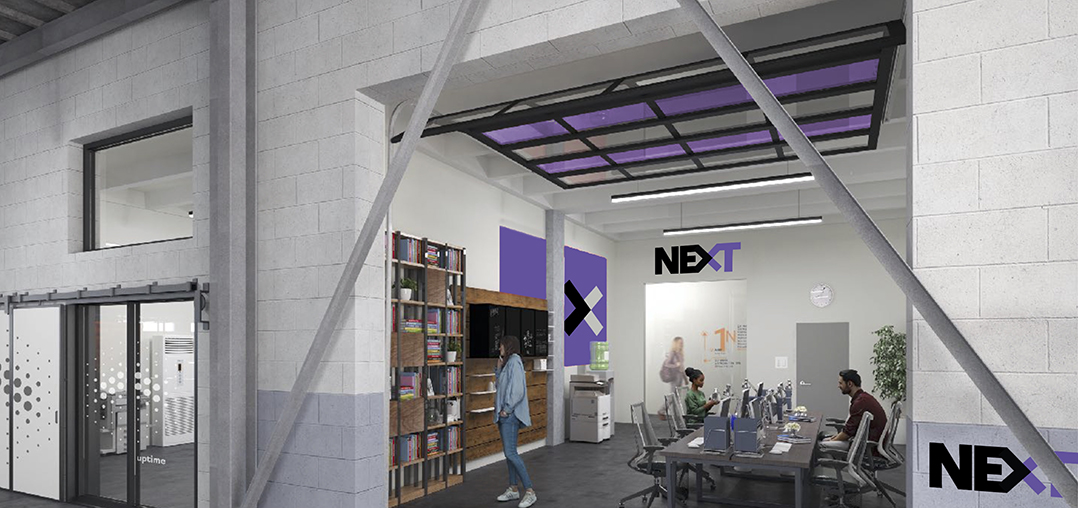John McDonald has a long history of helping companies build and operate their digital products, and he decided to put that knowledge to use.
The Fishers resident is the former owner of CloudOne, which was renamed ClearObject, a digital transformation leader in Internet of Things Engineering and Analytics. He sold the company to a private equity group in 2018.
McDonald recently has opened a venture studio called NEXT Studios.
“(At ClearObject) we often were involved in helping companies build and run what are called digital products. Essentially, they are apps or web services or websites or things that really help them improve something about a physical product they have on the marketplace, be it a car or a factory or piece of machinery or equipment,” McDonald said. “Sometimes, those would be start-up companies coming to us looking to help them do that very work. And unfortunately, oftentimes startup companies hadn’t quite figured out what their product was going to be or their funding.
“So, it got us thinking about how it might be great if there was an organization that would help startup companies go through a process, help them take their ideas into a product and their product into a company, and that’s what a venture studio is. That’s what its designed to do.”
McDonald wanted to start a venture studio to serve as a vehicle to help start-up companies get to where they need to be to launch their products. That dream turned into NEXT Studios, which launched in August.
McDonald said NEXT Studios has been in the works since early this year. The organization will be based in the 16 Tech Innovation District in downtown Indianapolis, which is under construction.
“We won’t occupy that space until January (2021), and that’s just our physical space,” McDonald said.
However, McDonald said NEXT Studios is designed to meet its startups where they are, be that the Internet of Things Lab in Fishers or Launch Fishers.
More than 40 startups have already reached out to NEXT Studios for assistance.
“We have selected 10 as our initial cohort, and that doesn’t mean we are done looking,” McDonald said. “We are certainly going to keep working on that, and we are interested in corporations or existing companies and not just startups. Companies that are already established and want to also take those ideas and develop them into products, we will work with them, too. There’s an unlimited amount of capacity for doing that work.”
NEXT Studios is operated by entrepreneurs, so McDonald said they know what mistakes not to make and problems to avoid, advice that is then provided to their clients.
“We want to collaborate with them and help them avoid problems or mistakes we might have made and have a better chance for success,” McDonald said.
NEXT Studios is a Benefits (B) Corp., and it will use a portion of proceeds from operations to reduce or eliminate NEXT Studio costs for startup companies.
Although the COVID-19 pandemic has posed economic challenges, McDonald said the American mentality will help the nation recover.
“When we have economic challenges in America, one of the aces in the hole is we have a very robust entrepreneurial mentality in America and a venture capital structure that is second to none,” McDonald said. “We need to start new businesses and therefore create and start new jobs, so this whole need to focus on entrepreneurs and starting new companies and creating jobs is now needed right now more than ever.”

‘Sweat equity’
NEXT Studios managing entrepreneur John McDonald said start-ps working with the venture studio are called portfolio companies.
“Essentially, to become a portfolio company, you have to sign an agreement and we work with you through a process that is actually published on our website,” McDonald said. “What the process is, (it’s) moving you through getting from your idea to a product and a product to a company. There are two ways to pay. The first is you pay for it, and the price for services is published on the website. The other way is we recognize not all startup companies have access to capital and can pay for these services, so what we can also do is, we can take equity or shares or stock in the company and use that to pay for our services in lieu of, or in addition to, any funding we have, and that’s called sweat equity.”
For more, visit next-studios.org.





